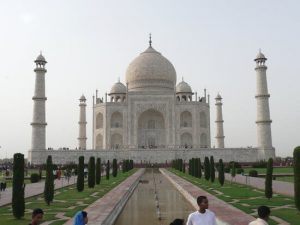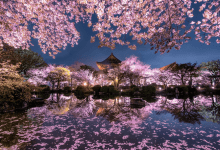Tabassum dwells of the name change controversy of Agra to Agravan by the UP government. An exclusive for Different Truths.
 What’s in a name? That which we call a rose
What’s in a name? That which we call a rose
By any other name would smell as sweet;
~ Romeo and Juliet, Act II, Scene II, William Shakespeare
The Uttar Pradesh government is planning to change the name of Agra to Agravan. This is indeed an issue of debate among historians. The Greek astronomer, mathematician and geographer Claudius Ptolemy seems to be the first person to mention Agra. A thesis titled ‘City of Agra under the Mughals from 1526-1707’ by Zeba Siddique suggests that Agra appears in the Mahabharata, where it is referred to as “Agravana”. Siddique also suggests, “The land is associated with the birth and legendary activities of Lord Krishna”. Some historians also suggest that it was known as Akbarabad.
A thesis titled ‘City of Agra under the Mughals from 1526-1707’ by Zeba Siddique suggests that Agra appears in the Mahabharata, where it is referred to as “Agravana”. Siddique also suggests, “The land is associated with the birth and legendary activities of Lord Krishna”.
News has it that Agra was also formerly known by the name of Angira Kshetra. Long ago, Rishi Angira, one of the great sages, had his ashram at this place. Hence, it was named after him, and the gradually changed into a shorter version, Agra.
People are talking a lot about the name change issue. Some propagandist will not miss it. It should not be an issue. Names change in the course of time. Emperor Ashoka’s Maithili is not known as Maithili anymore. It could either be Janakpur (in present-day Nepal), or Baliraajgadh (in present-day Madhubani district, Bihar, India).
Everything is subject to change. People should accept change. This debate can lead to dangerous rumors. Some YouTubers are already claiming that changing the name of Agra is first step of the process of demolition of the Taj Mahal.
Why do people make a hill out of a mole hole? We have changed the names given

during British colonial rule. Everything is subject to change. People should accept change. This debate can lead to dangerous rumors. Some YouTubers are already claiming that changing the name of Agra is first step of the process of demolition of the Taj Mahal. As some believe in the claim by P.N.Oak in his, Taj Mahal: The True Story, where Oak claims that the Taj Mahal was originally a Shiva temple and a Rajput palace named Tejo Mahalaya seized by Shah Jahan and adopted as a tomb.
The world knows Agra where the Taj Mahal is situated. A mausoleum, a symbol of beauty and aestheticism. Soothing for eyes and minds. We often wonder, was it Shah Jahan’s love for his wife, Mumtaj Mahal or his desire to become the symbol of eternal glory. The Taj Mahal, the UNESCO World Heritage Site is not only the pride of India but also of the world. It does not belong to any particular, race, religion, caste, ethnicity or nationality. Similarly, Angor Kot in Combodia, Sistine Chapel in the Vatican City, The Wailing Wall of Jerusalem, The Golden Temple in Punjab, The Lotus Temple in Delhi, The Temple of Sacred Truth, Srilanka and many more .
If the name is changed to Agravan or whatever the UP government wishes, the beauty and the hypnotic charm of Taj Mahal won’t be tarnished at all. It will remain as it is.
If the name is changed to Agravan or whatever the UP government wishes, the beauty and the hypnotic charm of Taj Mahal won’t be tarnished at all. It will remain as it is. Changing name won’t have any impact in the eyes of the visitors. The name Agravan won’t influence the timeless magnificence of the Taj Mahal. Even if the name of the Taj Mahal is changed, it won’t have any impact on the splendor of the architecture. To some, it is symbol of love, glory or majestic eye candy. In a nutshell, it is eternal symbol of beauty and aestheticism as beauty lies in the eyes of the beholders.
Photo from the Internet





 By
By
 By
By
